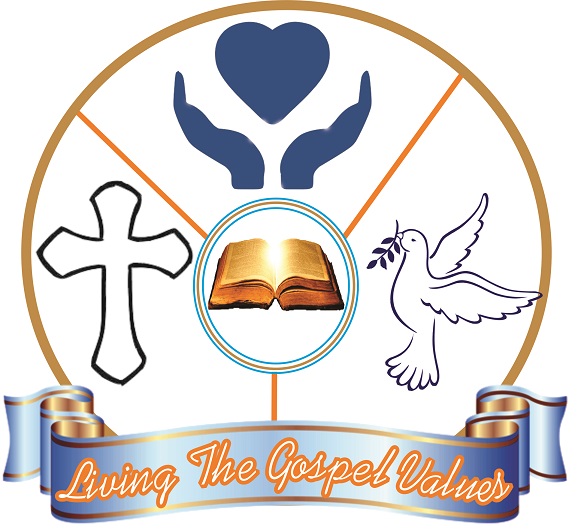St. Patrick: An Icon of Lenten Season
Living the Gospel Value
March 16, 2021
Reflection on Today's Readings and Feast, 4th Week of Lent, Year B, Wednesday 17th March, 2021
Texts: 1Pet. 4:7-11; Ps. 96:1-3.7-10; Luke 5:1-11
Today we celebrate the feast of St. Patrick, the secondary patron saint of Nigeria. However, there was no record that St. Patrick ever visited Nigeria in his lifetime or did something in regard to Nigeria. We were only told that he brought Christian faith to Ireland and possibly to Picts and Anglo-Saxon, never to Nigeria. Then, among great men of God such as Paul and Peter, what made St. Patrick the patron saint of Nigeria? St. Patrick brought the faith to Irish people while Irish missionaries brought the faith to us in Nigeria. Hence, He was indirectly responsible for bringing the faith to Nigeria. We, in Nigeria, benefited and enjoyed the fruits St. Patrick's labour. That was what earned him the position of secondary patron saint of Nigeria.
At age 16 in his homeland, Britain, Patrick fell a victim to Irish raider and was taken into slavery. When he had spent six years in slavery, upon having the dream of his escape, he fled and left his master. In his journey back home, he survived hard times, starvation and brief captivity. He finally reunited with his family. In his work, 'Confessio', he talks of a dream in which a letter headed, 'The voice of the Irish', was delivered to him. Reading the letter, he felt called to evangelize the Irish. It is said that he felt he was not good enough for the work because of his shortcoming in education, but that when he started the work, his ill feeling left and felt confident in the Lord. The brief note on the feast in the Daily Missal says, "After dramatic escape he decided to become a priest in order to bring the Christian faith to the Irish" (p. 1580). Though he experienced the danger of martyrdom constantly, he was not martyred; he died March 17, 461.
The virtues we can emulate from him is spelt out in aforementioned brief note thus: "Besides preaching, Patrick devoted himself to much prayer, severe penance and austerity." Life of prayer, penance and simplicity are integral part of Christian life, and are more emphasised during Lent. This makes him an important figure to emulate during Lent. We are also called to evangelize our world, even those who might have hurt us in one way or the other. We are to preach the gospel in words and in deeds. We are also not to look down on ourselves, but look up to God. When we look up to God, we will have confidence and we will be able to live out His will. When we look down on ourselves, we will often feel we cannot do the will of God.
Today's gospel reading shows us that with God we can do exceedingly well. It is God who makes our efforts fruitful, productive and yield in abundance. We work but God gives the yield. We only need to obey God to win His blessings upon our labour. When Peter obeyed Jesus Christ, he made a great catch beyond his imagine.
St. Peter, in today's first reading, says, says, "Beloved: Keep sane and sober for your prayers. Above all hold unfailing your love for one another, since love covers a multitude of sins. Practice hospitality ungrudgingly to one another." In our prayers we are to be sensible and simple. For our prayers to be sensible and simple we must have pure intention, not targeting it on getting fame or praise. A sensible and simple prayer is not about worldly affair but centred on glorifying God and the sanctification of man. Such should our prayers always be. We are told today to love because it removes that which always stands on the way of our prayer; it is sin always stands on the way of our prayers. We are also reminded to be cheerful in our practice of hospitality, act of kindness. This means we are not to practice hospitality as a duty, but for love. St. Peter goes on to tell us that whatever we do should be done for the glory of God.
God our Father, help us to be sensible and simple in our prayers, move us to love one another and to be cheerful in our practice of hospitality, and to do everything for your glory. Amen.
Fr. Andrew Olowomuke
- July 20251
- January 20253
- December 20242
- November 20245
- October 20244
- September 20242
- August 20245
- July 20247
- June 20247
- May 202413
- April 202420
- March 202422
- February 202428
- January 202434
- December 202333
- November 202330
- October 202333
- September 202329
- August 202331
- July 202331
- June 202315
- October 20221
- September 20228
- August 20221
- July 20221
- June 202218
- May 202230
- April 202230
- March 202210
- February 20229
- January 202228
- December 202133
- November 202130
- October 202130
- September 202115
- August 202128
- July 202131
- June 202128
- May 202133
- April 202128
- March 202130
- February 202131
- January 202131
- December 202032
- November 202032
- October 202034
- September 202028
- August 202031
- July 202031
- June 202026
Wikipedia
Search results
Contact Form
Popular Posts

The Sainthood
November 01, 2020

Conversion: Our way of Life
January 24, 2022

Be Unassuming
November 03, 2023
AD BANNER






0 Comments